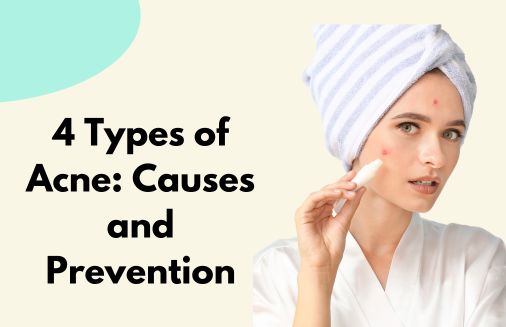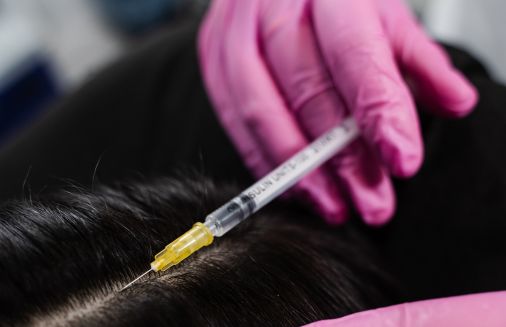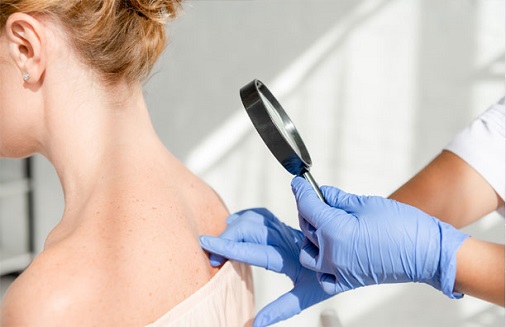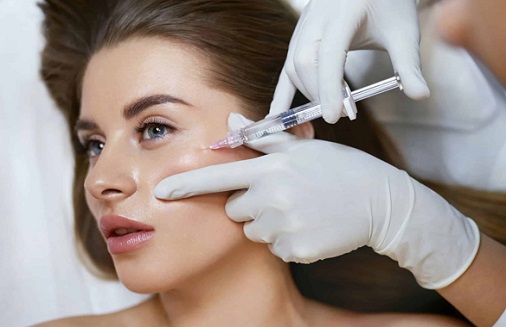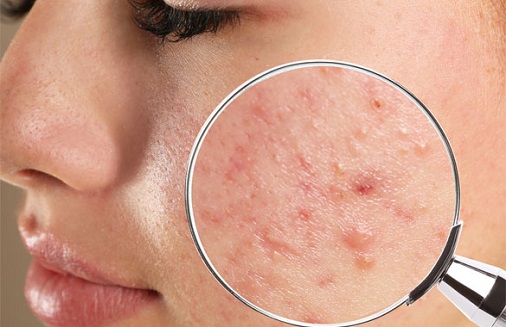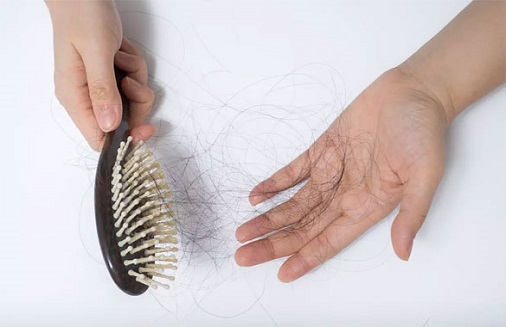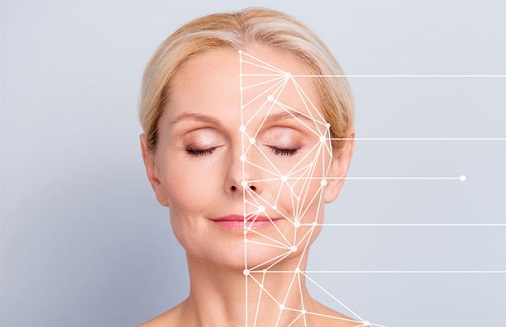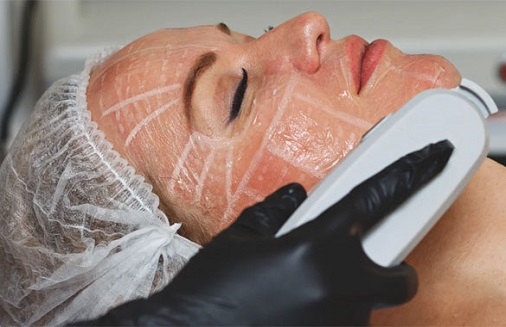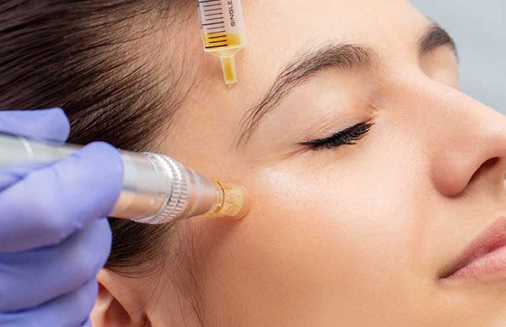
Dermatologists are doctors who diagnose and treat conditions related to your hair, skin, nails, and mucous membranes, which include the delicate tissue lining your nose, mouth, and eyelids. The Centers for Disease Control and Prevention (CDC) estimates that there are 44 million annual visits to dermatologists. These visits primarily focus on:
- Skin lesions
- Acne
- Skin rashes
- Discoloration or pigmentation issues
In addition to these medical and cosmetic concerns, dermatologists can also identify signs and symptoms of significant underlying health conditions.
For instance, conditions like diabetes can manifest symptoms that affect the appearance of your skin. A dermatologist might be the first healthcare professional to notice these signs.
This blog will delve deeper into the conditions dermatologists can treat and the procedures they perform. If you’re wondering when it’s appropriate to schedule an appointment with a dermatologist, we’ve got you covered as well.
What is Dermatology?
The term “dermatology” is derived from the root word “derm” or “dermis,” which originates from the Greek word “derma,” signifying the skin or hide.
Dermatology is a specialized field of medicine that concentrates on conditions impacting your skin. It encompasses not only skin-related issues but also concerns affecting your nails, hair, and the delicate linings of your eyelids, nose, and mouth.
Your skin holds the distinction of being your body’s largest organ, housing various essential structures such as nerve endings, sweat glands, hair follicles, pores, and blood vessels. Proper care of your skin is crucial for your overall health and well-being.
Although general practitioners and internal medicine doctors can diagnose and treat similar conditions, dermatologists possess a deeper understanding and extensive experience in this field. In fact, many primary care doctors often refer their patients to dermatologists for specialized care.
What are the Responsibilities of Dermatologists?
A dermatologist’s work can generally be categorized into three main areas, which consist of:
- Medical: Dermatologists diagnose and treat skin-related conditions such as plaque psoriasis, rosacea, and acne. They can also recognize skin symptoms that may indicate underlying health problems. For instance, dry, itchy skin could be a sign of kidney issues.
- Surgery: Many dermatologists perform minor surgical procedures, such as mole or wart removal and skin biopsies. Others specialize in more extensive surgeries, including the removal of benign cysts or treatment of skin cancer.
- Cosmetic: Dermatologists address skin concerns related to appearance, such as hair loss, dark spots, or wrinkles. They are often trained to provide cosmetic treatments like fillers, chemical peels, and laser hair removal.
What kinds of conditions do dermatologists address?
Dermatologists can manage numerous conditions that impact your skin, hair, or nails. Some of the most prevalent conditions they address include:
- Acne: Depending on its severity, dermatologists can treat acne with topical solutions, medications, laser/light therapies, chemical peels, or by addressing large cysts.
- Skin Cancer: Dermatologists can identify and remove cancerous cells, providing ongoing monitoring to prevent recurrence, as skin cancer can appear anywhere on the body.
- Dermatitis: Dermatitis encompasses various skin conditions causing inflammation and irritation, such as eczema, cradle cap, and allergic reactions.
- Infections: Skin can be vulnerable to infections from viruses, bacteria, fungi, and parasites. Dermatologists diagnose the infection’s cause and prescribe appropriate treatments.
- Hair Loss: Dermatologists determine the root cause of hair loss, whether it’s hereditary, stress-induced, illness-related, or due to hormonal changes, and offer suitable treatments when possible.
- Nail Problems: Common nail issues like spots, discoloration, and nail separation are effectively treated by dermatologists.
What kinds of procedures do dermatologists perform?
Dermatologists are skilled in performing a broad spectrum of procedures, ranging from minor ones like skin tag removal to more complex procedures such as skin cancer surgery.
Dermatologists commonly perform various procedures, including:
- Biopsies: Dermatologists conduct different biopsy procedures to diagnose or rule out skin cancer and other conditions.
- Laser Therapy: Laser treatments are employed to remove warts, moles, sun spots, tattoos, acne scars, blemishes, wrinkles, or unwanted hair.
- Surgical Excision: Surgical excisions are done to remove growths such as moles, skin tags, and lesions, typically under local anesthesia to ensure minimal pain.
- Cryotherapy: Controlled exposure to extremely cold temperatures is used in cryotherapy to treat skin conditions like warts, skin tags, and some tumors.
- Sclerotherapy: This procedure addresses spider and varicose veins by injecting chemicals into damaged veins, reducing their appearance.
- Mohs Surgery: For skin cancer removal, Mohs surgery entails removing thin layers of tissue around a tumor, with frequent examination to ensure complete removal of cancer cells.
- Chemical Peels: Dermatologists employ chemical peels to eliminate damaged skin, promoting the growth of new, rejuvenated skin and reducing signs of aging.
- Cosmetic Injections: Botox and fillers are used by dermatologists to diminish wrinkles and sagging skin, administered during office visits.
- Dermabrasion: This exfoliation technique helps reduce the appearance of fine lines, age spots, acne scars, and precancerous skin patches.
- Tumescent Liposuction: Dermatologists utilize liposuction to remove excess fat from specific body areas.
When should you consider seeing a dermatologist?
- If you have skin that may be at risk for skin cancer, it’s advisable to schedule an annual skin check-up with a dermatologist. During this appointment, the dermatologist will thoroughly examine your skin for any potential indicators of skin cancer.
- If you are uncertain about the need for an annual skin check, consult your primary care physician for their recommendation.
- If you’re experiencing any concerns or discomfort related to your skin or hair, a dermatologist can assist in diagnosing and treating the condition.
How to find a dermatologist?
If you have ever wondered about the importance of a dermatologist in maintaining your skin’s health, you’re in the right place. Dr. Shirin Bakshi, a renowned expert in dermatology, and here to shed light on how a dermatologist can make a significant difference in your life. You can seek the services of a dermatologist in South Delhi at DermaSure Skin & Hair Clinic.
When selecting a dermatologist, consider the following factors:
- Specialization: Determine whether you require medical, surgical, or cosmetic treatment, as some dermatologists specialize in specific areas. It’s essential to find the one that suits your needs.
- Expertise in Treating People of Color: If you have a different skin tone, inquire whether the dermatologist specializes in treating individuals with similar skin tones. Some treatments may have different effects on people of color, and expertise in this area can be crucial.
- Board Certification: Verify if the dermatologist is board-certified. The American Academy of Dermatology offers a search tool to help you locate a board-certified member near you.
- Recommendation from Primary Care Physician: Seek recommendations from your primary care doctor, who can guide you to a dermatologist with experience in treating your specific skin condition.
Conclusion
Dermatology is a specialized field of medicine that concentrates on conditions affecting your skin. It also encompasses conditions affecting your nails, hair, and the delicate linings of your eyelids, nose, and mouth.
A dermatologist, such as Dr. Shirin Bakshi at DermaSure Skin & Hair Clinic, is a healthcare professional specializing in the diagnosis and treatment of various skin, hair, and nail conditions. Their expertise extends to both medical and cosmetic aspects of dermatology, ensuring that you can achieve and maintain healthy, beautiful skin.
A dermatologist not only takes care of your skin’s health but can also assist in preventing future skin problems, such as premature aging or skin damage. Regular check-ups with a dermatologist can also lower your risk of developing more severe conditions, such as skin cancer.





















